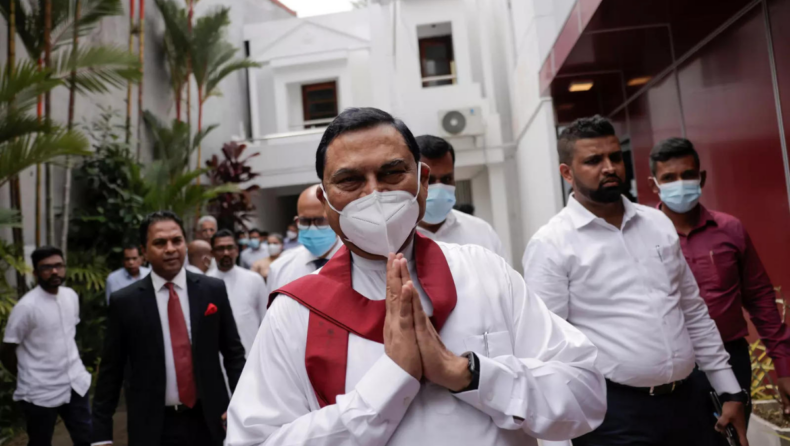On Wednesday, the Supreme Court of Sri Lanka decided to extend the ban on international travel imposed on former Prime Minister Mahinda Rajapaksa and his younger brother and former Finance Minister Basil Rajapaksa until August 11. Both men are widely held responsible for the current economic crisis that is affecting the island nation of Sri Lanka.

When a motion that was related to a petition asking the court to issue an order for an investigation against the people responsible for the current economic crisis came up on August 1, the country’s highest court extended the ban on Rajapaksa and his younger brother’s ability to travel overseas until August 4. This extension took place after the motion was brought up.
The petition that was submitted by a group that included former Chairman of the Ceylon Chamber of Commerce Chandra Jayaratne, former Sri Lanka swimming champion Julian Bolling, Jehan Kanagaratnam, and Transparency International Sri Lanka claimed that three individuals – Basil, Mahinda, and former Central Bank Governor Ajith Nivard Cabraal – were directly responsible for the unsustainable level of Sri Lanka’s foreign debt, its debt default, and the current economic crisis that has led to an acute shortage
The highest court in Sri Lanka ordered on July 15 that the three individuals be prevented from leaving the country until July 28. The moratorium would not be lifted until August 2 later on.
At the beginning of this month, demonstrations from passengers as well as officials at the Bandaranaike International Airport here prevented Basil from leaving Sri Lanka.
Gotabaya Rajapaksa, the brother of Mahinda and Basil Rajapaksa, and the former President of Sri Lanka, arrived in Singapore on July 14 on a “private visit” from the Maldives. He had fled Sri Lanka to escape a popular uprising against his government’s economic mismanagement. Basil Rajapaksa is Mahinda and Basil’s father.
The government of Singapore has granted Rajapaksa a new visa, which would allow him to remain in the country until August 11th.
Many people believe that the previous administration of Sri Lanka, which was led by Rajapaksa and members of his family, was responsible for the island nation’s poor economic management, which has led to months of widespread discontent.
Midway through April, the government made the decision to declare bankruptcy by not honoring its foreign financial obligations.
The island nation of 22 million people is currently mired in a catastrophic economic crisis, the worst in seven decades. As a result, millions of people are having trouble purchasing food, medicine, fuel, and other necessities. Sri Lanka’s overall foreign debt amounts at USD 51 billion.













